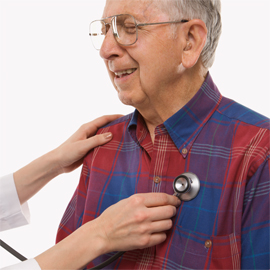
If you have any problems, questions, or concerns during office hours of 8:30 AM to 5:00 PM, call 229-432-8484. If you have urgent issues outside of office hours, you can page a medical assistant by dialing 229-889-3136. Please note that your call will be returned to the number that appears on the caller ID. Your call cannot be returned if your number has been blocked.
You can reach a Nurse Practitioner from the Bariatric Institute of Southwest Georgia during business hours at 229-434-2032. After hours, you can page a Nurse Practitioner here at 229-431-4206. Again, you will need to make sure that you’re calling from an unblocked number where you can receive a return call.
In the case of an emergency, go directly to the Emergency Center at Palmyra Medical Center.
Additional discharge instructions:
- Do not drive while you’re taking pain medication. If you’re not taking pain medication, you should be able to return to driving within 3 or 4 days.
- Do not lift or pull anything heavier than 10 pounds for at least 2 weeks after surgery.
- Do not attempt to pull or scratch off the Dermabond used to close your incisions. They will wear off in time.
- Unless directed otherwise by your surgeon, you will be able to shower using soap and water. This will not affect your incisions.
- Take liquid Tylenol or Motrin for any pain. Do not take pills or gel capsules.
- Take your vitamins every day. We recommend 2 Flinstone chewables or Centrum liquid or chewable vitamins.
Eating/drinking after surgery:
- Drink plenty of liquids. Strive for 64 ounces every day and take sips throughout the day. You will need to avoid carbonated beverages and limit your caffeine.
- For the first 3 to 4 days, you’ll need to be on a liquid diet. This can include popsicles, gelatin, and chicken or beef broth.
- During days 5 to 12 after surgery, you can have creamy liquids. This includes creamed soups, yogurt, puddings, or smoothies. Do not rush to start eating solid foods.
- After a week of creamy liquids, you can move to very soft or pureed foods for another week before trying solid foods.
- Starting solid foods too soon—that is, earlier than 6 weeks post-op—can stretch the small stomach pouch that was created with the gastric band. This can increase your risk for prolapse or symmetrical enlargement.
Follow Up Appointments:
Do not miss your follow-up appointments. Regular follow-up is one key to weight loss success with gastric banding. It’s also important for preventing complications. During your follow-up appointments, you can discuss any questions you have and talk to your surgeon about how much you can eat or drink normally. This information helps your surgeon decide how much fluid needs to be added to your band. You will probably have your first “fill,” during which fluid is injected into the band through your access port to tighten it, about 6 weeks after your surgery.

